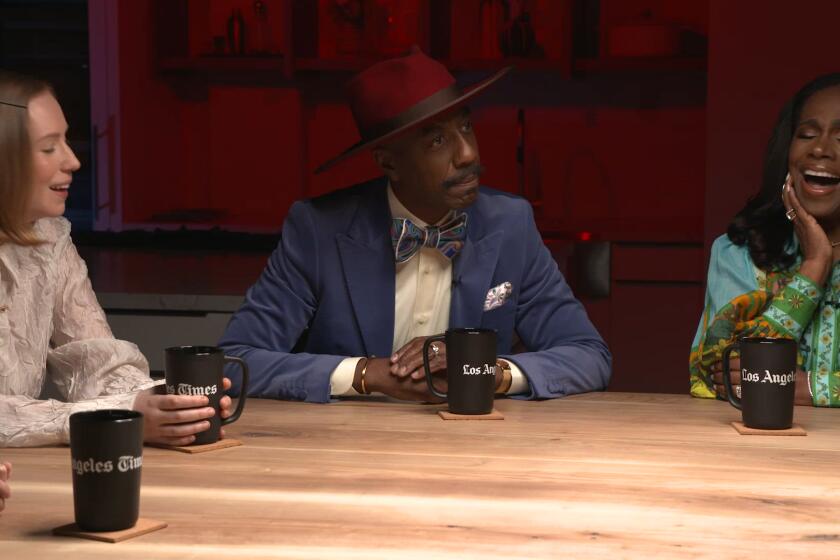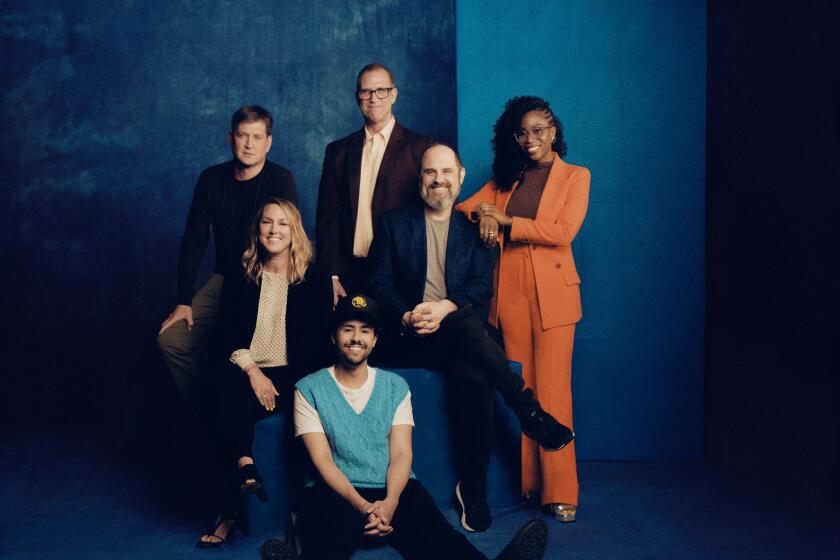
- Share via
Comedy takes on many different forms. Larry David’s HBO series, “Curb Your Enthusiasm,” weaponized improv for more than two decades to make its audience laugh-cringe. ABC’s love letter to underpaid educators, “Abbott Elementary,” elevates the workplace mockumentary. And “Saturday Night Live” has harnessed the power of sketch comedy to rule late-night television for nearly half a century.
But those who practice the art of humor agree there’s at least one unifying element among these different approaches: Comedy performers are people pleasers.
“People want to laugh, and I love when we get our audiences there,” says Sheryl Lee Ralph, who plays everyone’s favorite teacher, Barbara Howard, on “Abbott Elementary.” “Where all they can do is laugh and be happy, and we’re the ones that gave it to them.”
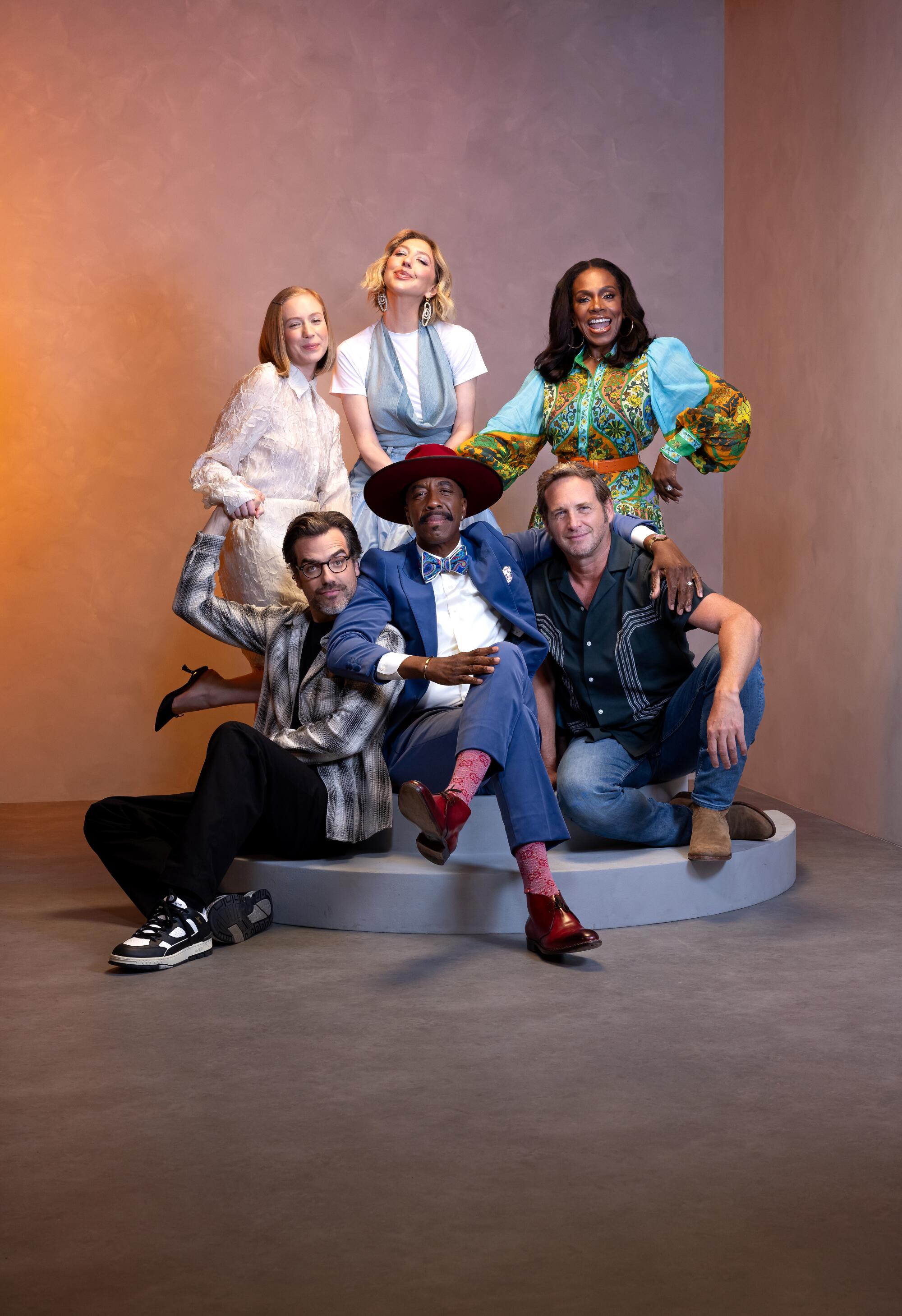
“We have to notice what people love about us the moment we’re onstage,” adds J.B. Smoove, who played the forever houseguest Leon Black on “Curb” before the show wrapped this year. “There can be a thousand people out there laughing, but we’ll find that one dude who’s sitting there like this [frowns]. We can find that one person who is not laughing.”
“Mine’s always in the front row,” says Hannah Einbinder, a stand-up performer who plays a comedy writer in HBO’s multigenerational dramedy “Hacks.” “His girlfriend is [all smiles] and he’s [grimacing]. With comedians, there is a desperation. You can’t imagine not doing it. And as we all know from performing, the fear is real. But the second you get that laughter, it melts. It’s a relief.”
“That’s the people pleaser thing in us,” adds Daniel Ings of Netflix’s breakout British gangster satire “The Gentlemen.” “I’m like, ‘I’ll break you! I’ll get you!’”
These revelations and more emerged when six performers from today’s top comedy series gathered in late April for The Envelope Comedy Roundtable, comparing notes on everything from the terror of auditions (“I’m horrible at them,” admits Josh Lucas of Apple TV+’s high-society-set “Palm Royale”) to breaking during particularly funny moments on set (“Well that was unprofessional!,” laughs Heidi Gardner of NBC’s “Saturday Night Live”).
This conversation has been edited for length and clarity.
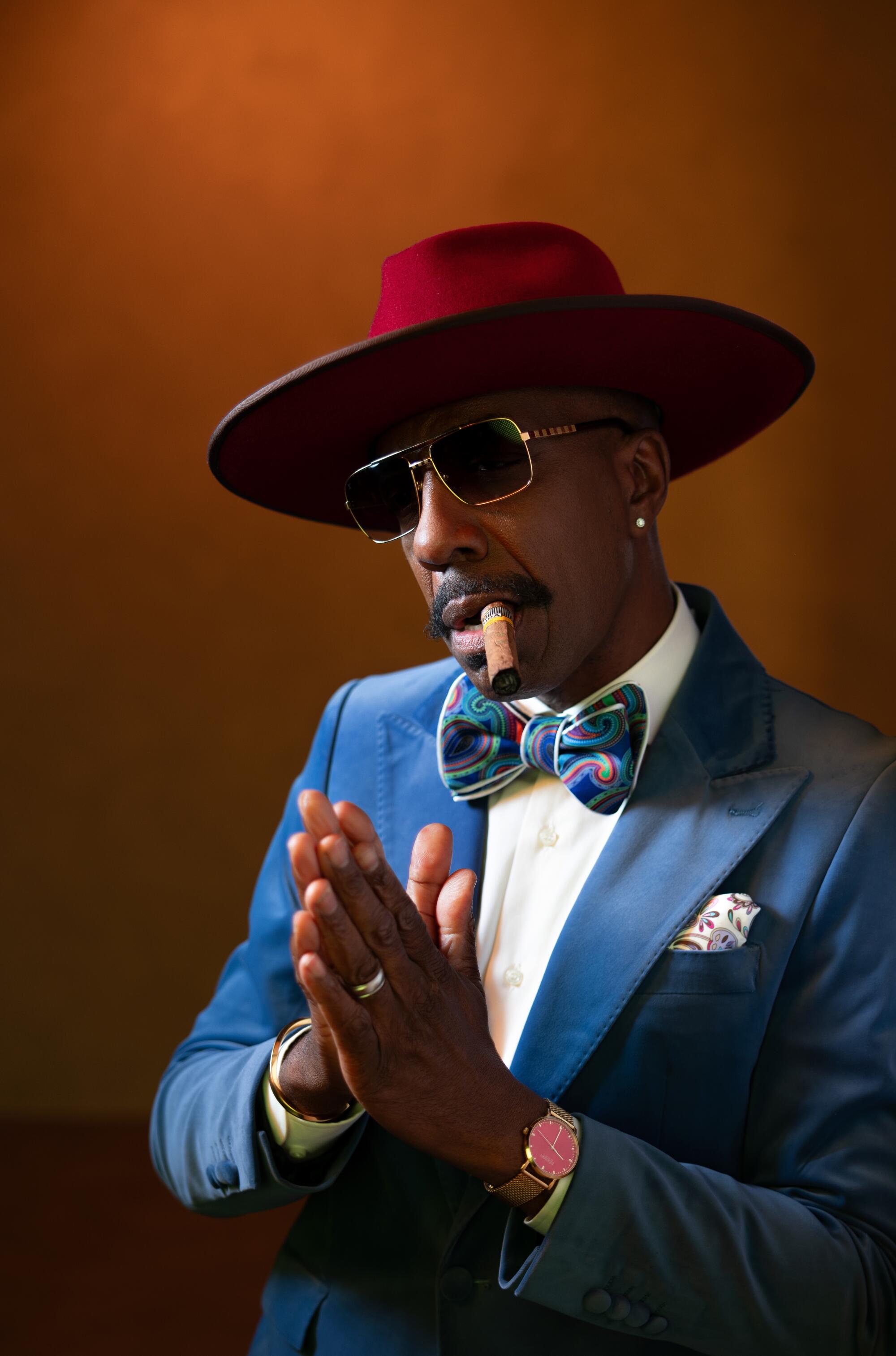
You’re all part of incredibly funny productions. What was the audition process like for your respective shows?
J.B. Smoove: I didn’t even know that the process was to improv in front of Larry [David], with Larry. But I do have this thing I do where I love to go in the room as the character. I like to drive the car, meaning that I like to control the room. Coming from the stand-up world, that’s kind of what we do. We step onstage, we control the room. We have the microphone, we’re the loudest person. So I took that and I said, “I’m going in as the character.” You see how I walk in the room, you see my mannerisms right away. If I can make you laugh without saying a word, I got you.
Hannah, in “Hacks” you star opposite seasoned veteran Jean Smart. You’ve said that your audition for the show was the one time that your low self-esteem actually paid off.
Hannah Einbinder: I went in with total confidence that I would not book it, so I was like, “I’ll just have fun.” I was so confident in that truth that I think it actually kind of carried me. And I was just so jazzed on the material. It was right before COVID that I auditioned and then my callback was during lockdown over Zoom. I’m a stand-up comedian and I couldn’t go onstage, so all I could do was engage with this one piece of comedy. I was grateful to be able to even do that, to just sit with that work and have access to this brilliant piece of comedy that I was otherwise starved for.
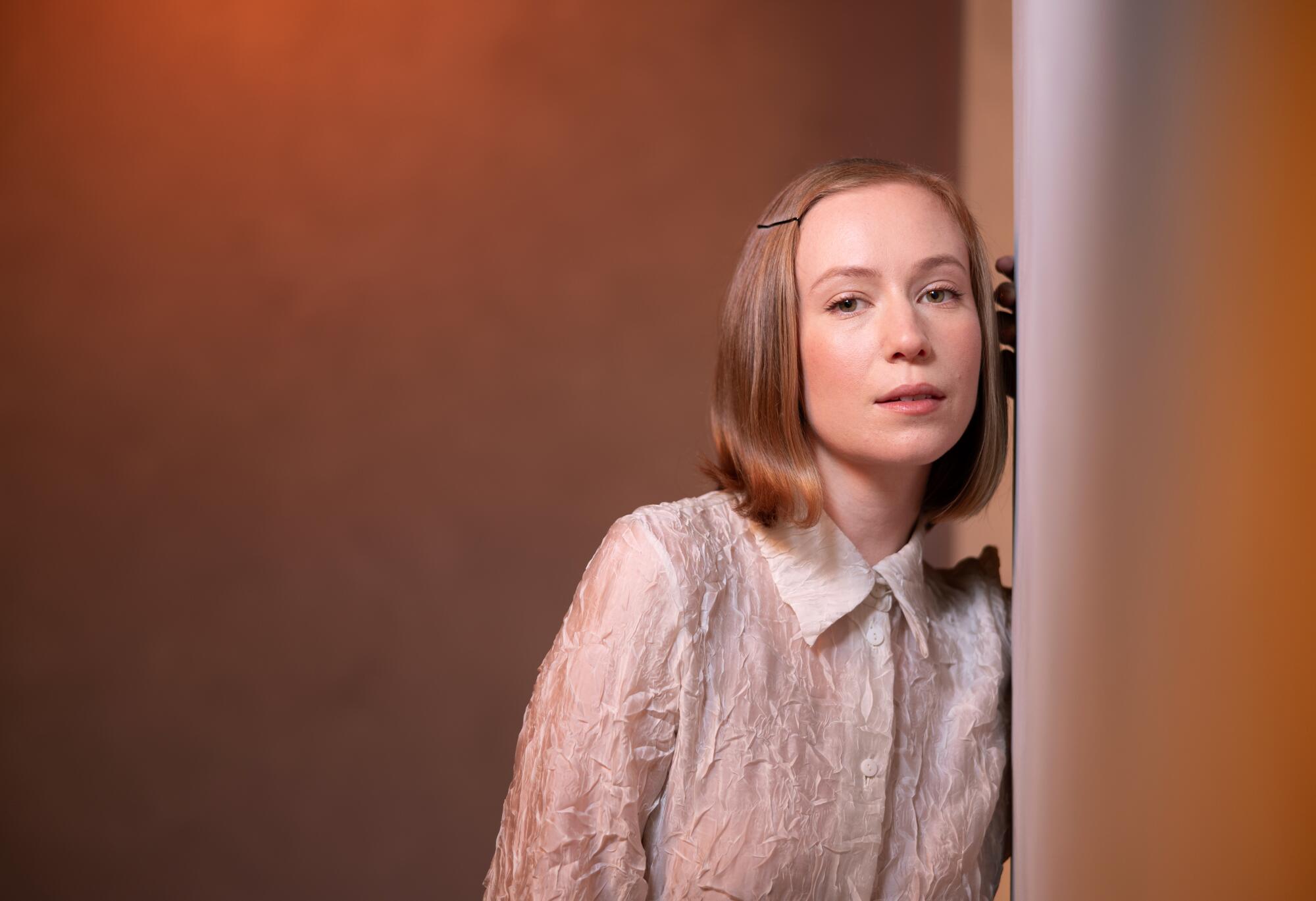
Heidi, you play so many different characters on “SNL,” from Michael Jordan’s bodyguard to Your Co-Worker Who’s Extremely Busy Doing Seemingly Nothing. How many did you do when you tried out for the show?
Heidi Gardner: You get five minutes, and they said do not go over. So I did 12 characters in five minutes. I just tried to wham-bam ’em. Then I heard they wanted me to come back, but this time it had to be a whole new set. I was like, “But those were the 12!” Those were the ones that I had. I was just performing at the Groundlings in so many shows and failing a lot. So for that second audition, I was like, “Well, that sketch didn’t work at the Groundlings, but I think people liked this one little part of a character. I could do that for 15 seconds.’ So I always say in my second audition, I did my bench players and they got me the job.
In comedy, is it harder to pull back or power up?
Sheryl Lee Ralph: The first season of “Abbott,” director Randall Einhorn said to me, “Do nothing.” And I’m like, “Do nothing? I’m an award-winning actress. I’m from the stage. Do nothing?!” When you can take the direction and try to understand what your director is saying with “Do nothing” and bring it down, it changes everything for the character. I thought I knew my character, but with that piece of direction, she rose up to me and I was like, “I got you, Barbara Howard.”
Smoove: I got that same thing. My first day on “Curb,” coming from “SNL,” where I wasn’t a cast member but I got a chance to get on camera a lot, there’s a different rhythm to monologues and sketches. When I transitioned, it was literally like two months apart from “SNL” to “Curb Your Enthusiasm.” The first day on the set, we’re in the scene with Larry and he said, “Cut, cut, cut! Don’t play it sketchy. Play it real.” I knew exactly what he meant, because there is a certain rhythm that you project differently. And I said, “I got you. That’s the last time you have to say that to me.”
Daniel, your character, Freddy, in Guy Ritchie’s “The Gentlemen” is an entitled, insecure, cocaine-addled mess, who at one point does a dance in a chicken suit after killing someone. So how much of you is in him?
Daniel Ings: The raging coke addiction and the gambling problem? No. But in my head I always sort of play myself and manage to make it look like I’m playing someone else. Thankfully, I’m not too much like him. But that was a fun one. Freddy was just such an unlikable character on the page. I thought everyone’s got to want to spend time with him. Even if he’s an a—, even if they don’t want to spend time with him in real life. So when I go in for the audition, I’m thinking I’m going to have to change this stuff. Even if what they have is better, I’m going to wing it because I don’t want that to be a surprise on the day that I’m suddenly changing [things] on them. I’m making myself sound like a real a— here.
Ralph: You sound like a respectful actor, because it’s also to give respect to the writers. It’s to be able to look at it and say to them, “Do you mind if we try it this way?” Or “I think I might be able to give you something more If I deliver it this way.” I think it’s far more respectful to do that beforehand ...
Ings: And you can only do that if they’ve got it right on the page to begin with. It is a compliment because you’re like, “Oh, this gives me a thousand ideas.”
“Palm Royale” boasts an amazing cast that includes Kristen Wiig, Carol Burnett, Allison Janney and Ricky Martin. Josh, what was that like working alongside so much talent while playing Douglas Dellacorte, a philandering husband who always seems on the brink of ruin?
Josh Lucas: I was so excited about the idea of being a part of something with this group, and the fact that it was comedy, which I hadn’t been able to do much of for a very long time. I just had this weird love affair with Douglas as being this, like, puppy dog. A product of this world that he had run away from and falling crazy in love with this woman [played by Wiig]. I saw all the great in him, always being drawn back into his flaws and his madness. I think the battle is [trying to figure out] why we like someone, even if they’re a terrible person. It’s the idea that terrible people oftentimes have lovable elements.
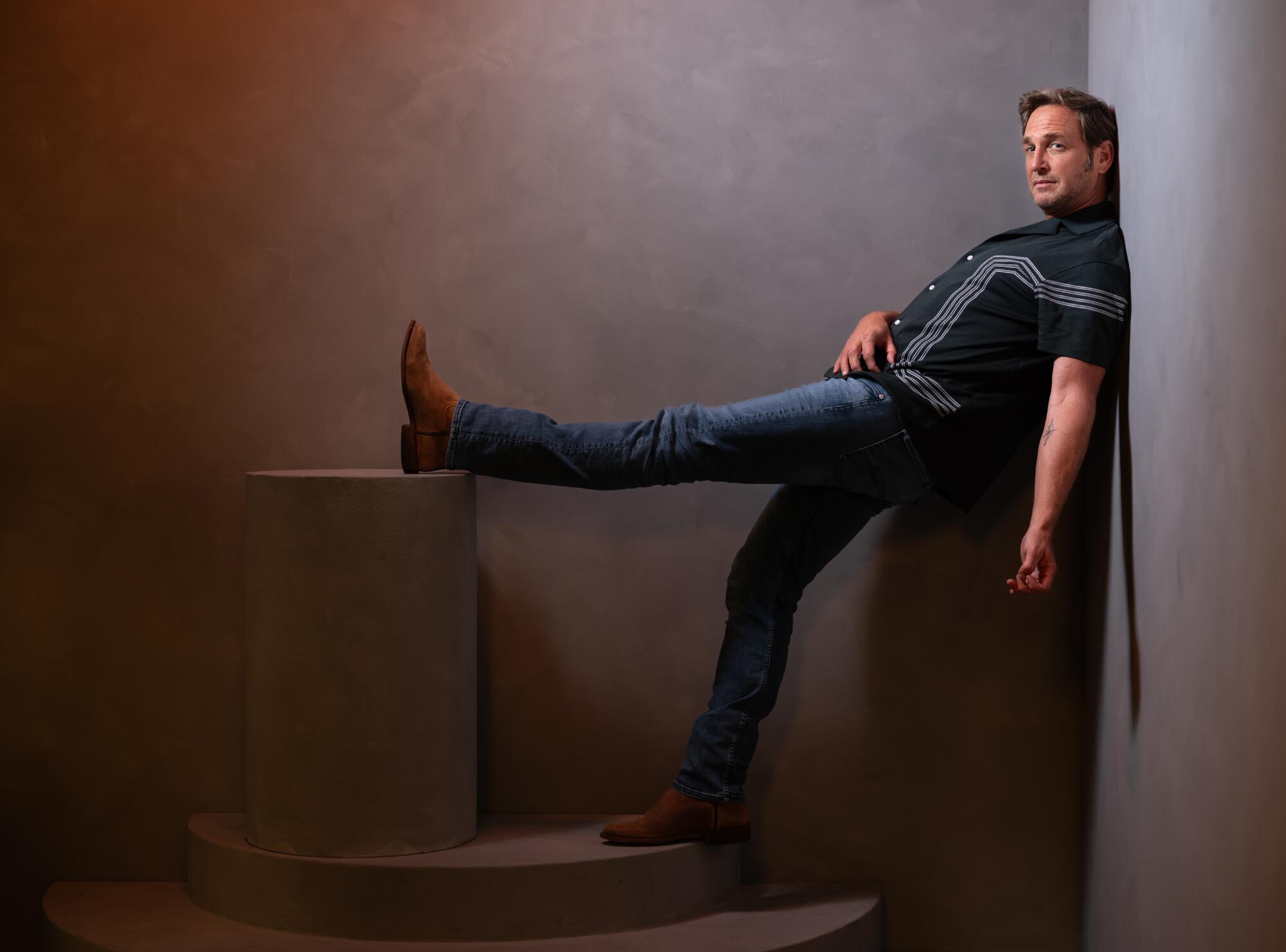
How much of you makes it into the characters you play?
Smoove: When I put my wardrobe on, I immediately become this dude. And literally, I feel like he is not me. We have the same cadence maybe here and there, but we are two different people. The funny thing is that sometimes on my way home [from the set], my wife would call me to see how my day was and she’d say, “What did Leon say today?” And I’m literally telling her what he did today. ... But the writers in the room, they know your cadence. They know your delivery. They know things that you don’t know about yourself. They see your little quirks and they end up being part of your character.
Ralph: They end up being in the script. They don’t mind embarrassing you, either.
Which quirks of yours ended up in the script?
Ralph: For whatever reason, I see people differently than their names. I knew for sure that Orlando Bloom was a Black man. I knew he was a young, Black football player. I knew it. When I saw him, I was just, “That’s not Orlando Bloom.” And Darren Star. I knew Darren Star was a young Black influencer. I was proud of Darren Star! Then I was at one of those balls, Elton John or Elizabeth Taylor ... and someone said, “You must go and meet Darren Star.” I said, “Where is he?” They say, “He’s right there.” “Where? That’s an older white man.”
The whole cold opening — I think it might have been the third episode — was me as Barbara Howard mixing up everybody. Everybody’s wrong and she just was so right. So that’s my quirk — Orlando Bloom is a football player and a Black man.
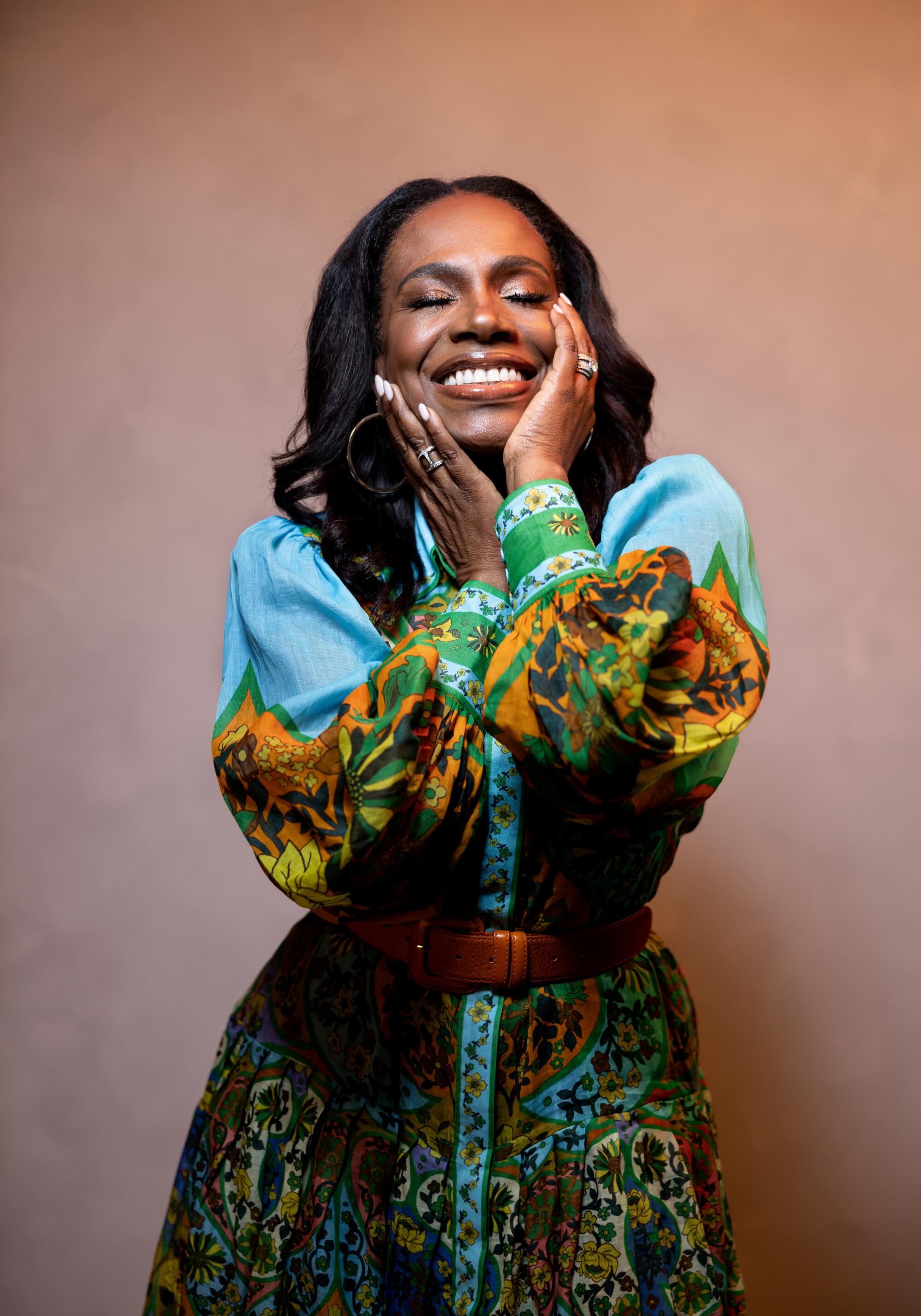
Are you all ever mistaken for somebody else in public?
Lucas: Matthew McConaughey. My mom called me, she’s like, “You’re on the cover of a magazine?” I swear that’s true. I once got in a full-on confrontation with a guy on the street because I would not sign his autograph as Matthew McConaughey. He was screaming, “You’re a f— a—, McConaughey!” And I was like, “I’m not f— McConaughey!”
Einbinder: I always get Gigi Hadid.
Gardner: I get Bella [Hadid].
Ralph: There was a point after “Dreamgirls” [on Broadway] when I was getting on a plane, and someone was like, “Hi, Whitney.” “I’m not Whitney Houston.” Time goes by, then the next person says, “Oh, Ms. Houston.” “I am not Whitney Houston.” Plane ride goes by, and the [flight attendant] comes with a bottle of wine and says, “I just want to say how much I adore you, Ms.— ” and I say, “I am not Whitney Houston!” The person backed up and said, “I’m sorry. Aren’t you Ms. Sheryl Lee Ralph?” I was so embarrassed.
Smoove: I don’t know if you guys have ever been through this, but I was at a urinal …
Ralph: I’ve never been there.
Smoove: There’s certain things you just don’t do. Like guys shouldn’t ever talk at the urinal.
Ings: It’s a breach of the code.
Smoove: But a guy said, “I love you, John Salley.” The basketball player. I said, No. 1, don’t talk to me while we’re at the urinal and then really? You think I’m John Salley?
Ings: There’s a footballer in the U.K. who has the same name as me. So for years, every time I’d turn up on set everybody would be disappointed, like, “Oh, we thought you were going to be Danny Ings, the footballer.” Since this show came out, now people squawk chicken noises at me in the street. I’ve gone from Not the Footballer to the Chicken Guy in the space of, like, three months.
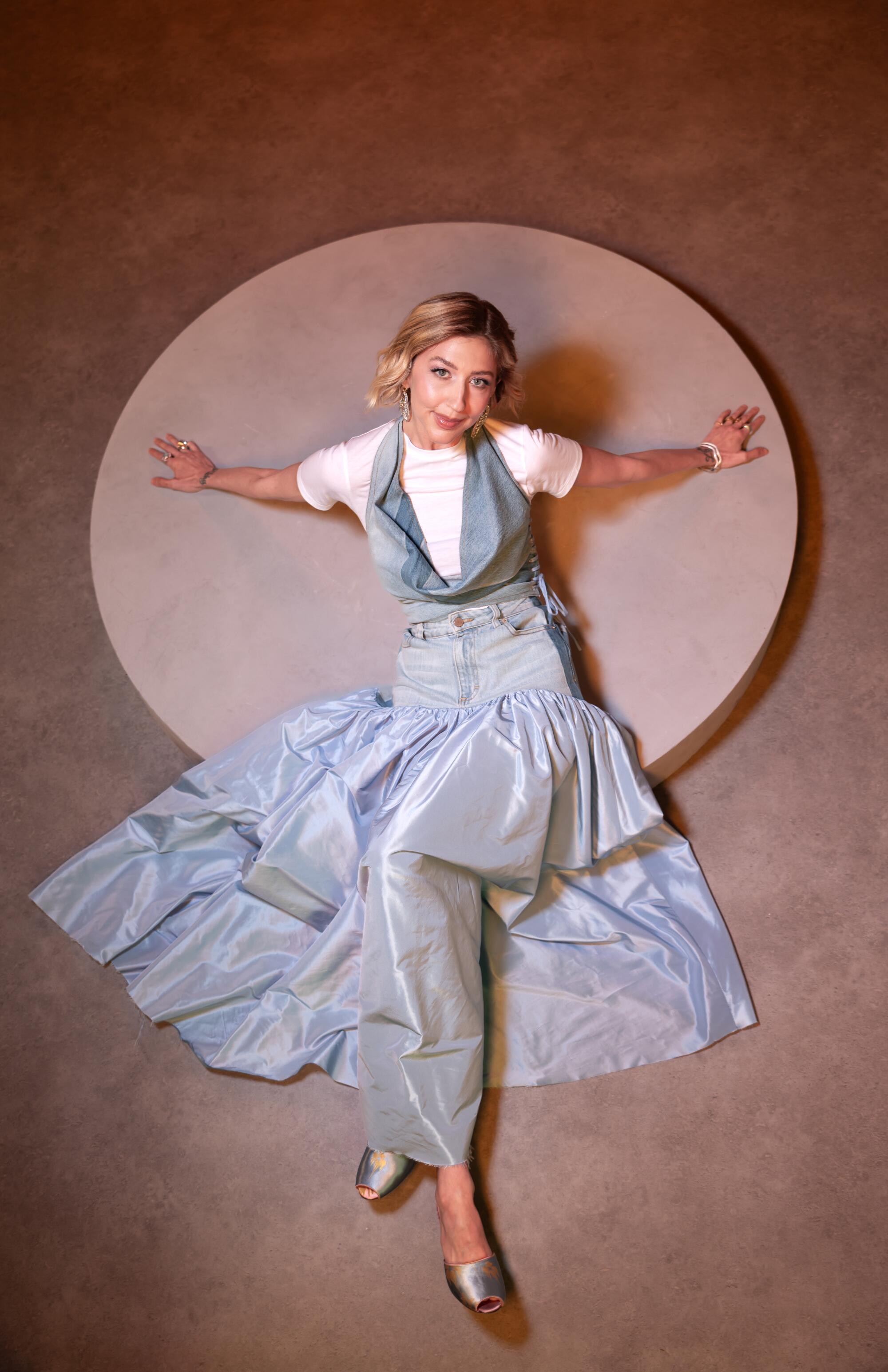
Heidi, you’ve said that as a former hairdresser, you found inspiration for your characters from your clients. Where else does it come from?
Gardner: Sometimes it’s just hearing a voice or one line someone says. Like, I got to the hotel the other night and this woman was getting out of an Uber and the first thing she asked the concierge was, “You know anywhere I can get a good tattoo?” And I was like, “I love her. This woman’s my everything right now.” And that’s all I need to then just [figure out] what world can I put her into. The writers of the show are great and sometimes I’ll go to a writer just with that and they’ll be, like, Yeah, that’s funny. The writers at “SNL” are so good. And when the ones I work with closely every week see my passion for something they’re like, “Ooh, we’re right there with you.” They’ll get on their feet with me and we’ll just start creating together.
Josh, you also play the younger version of Kevin Costner’s character, John Dutton, in the drama “Yellowstone.” It’s tonally quite different from “Palm Royale.”
The first season Taylor Sheridan told me, “Look, you’re going to do very little in the first couple seasons and then I’m going to bring you back heavily in Season 5. First of all, this was the pilot of “Yellowstone.” “Yellowstone” was nothing but just kind of an idea. So cut to right before “Palm Royale” and I got this call from Kevin (Costner) saying, ‘Hey, you’re coming back onto “Yellowstone.” So I was like, “Oh, what if I could do both?!” And I did. It’s such an incredible thing to go from comedy back to drama.
Have you all used comedy as a means of coping?
Gardner: The first sketch I ever saw was Eddie Murphy as James Brown. My parents got divorced when I was young, but one of the last moments I remember of all of us laughing together was watching that sketch. The first time I remember making them laugh was [imitating] Dana Carvey when he would do “Weekend Update” as Robin Leach: “My name is Robin Leach, and I don’t know why.” They would laugh and I was like, “Ooh, this is cool.”
Ings: My parents divorced when I was young too, and comedy was like a currency within the family. You can access a reaction from someone to get attention or to deflect in a tricky situation. Comedy was a way to connect. It’s how you bond in weird situations. It’s something that’s in your bones from a young age because you figure out how to get this reaction from people that they weren’t prepared to give. I f— made you laugh!
Gardner: I realize how much I’ve leaned on the funny thing I could say to diffuse the tension. And what if, as an adult, I just didn’t do that? What happens?
Ings: Wait, that’s an option? How do we do that? Teach me.
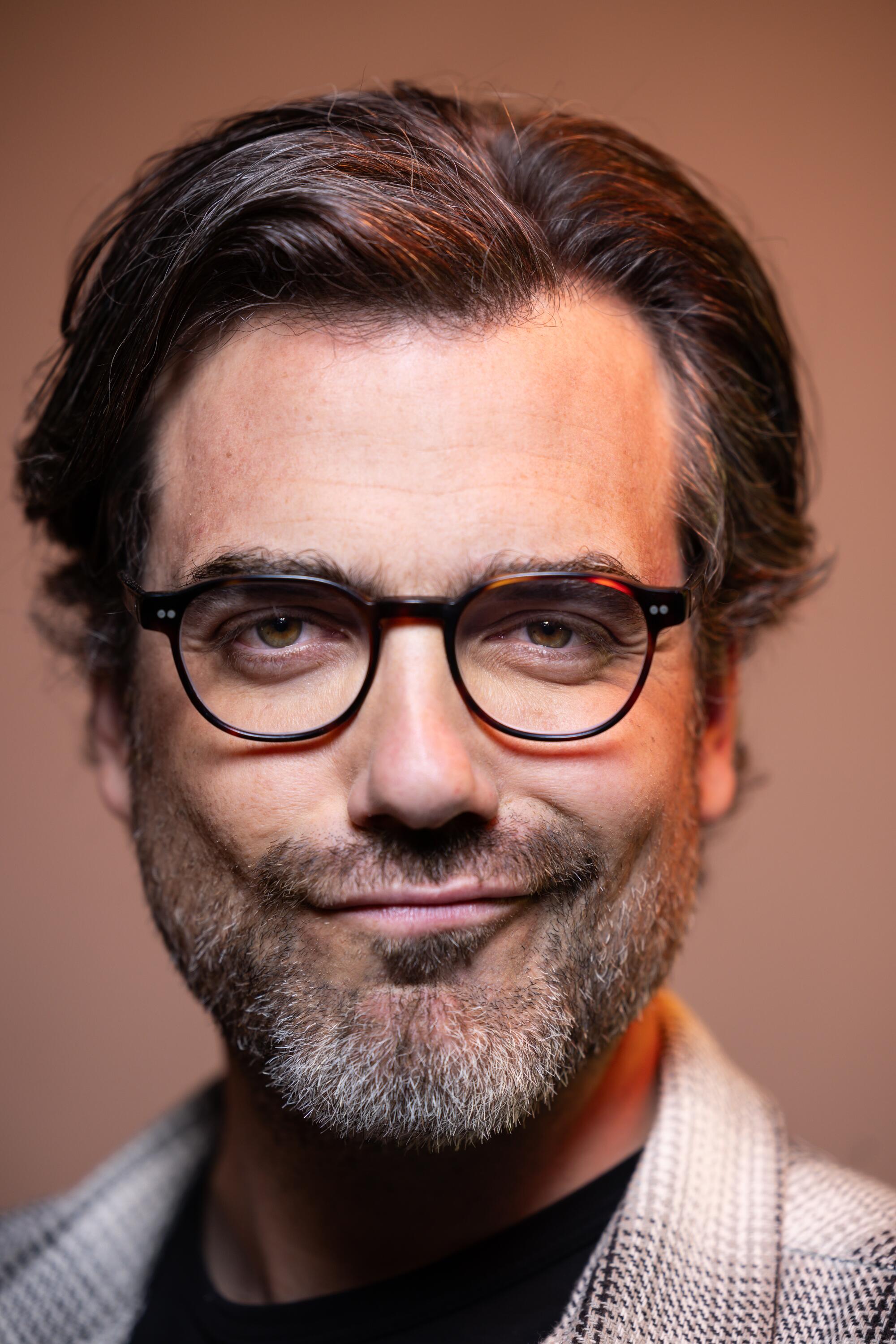
What’s more challenging, comedy or drama?
Lucas: The thing about comedy that’s different from [drama] is that it allows you the freedom to be much more bold. I always have been mystified why comedy — and I hope nobody would be upset that I would say this — but it has [often been] considered a stepchild [to drama]. But it’s far harder. It’s by far the most difficult. It’s by far the most rewarding.
Ings: There’s a purity to it too. They laugh or they don’t laugh. It’s honest-to-God comedy because it worked or it didn’t work. I remember doing a play once that was a scripted comedy but with [room for] improv. So I was like, “Well, it’s open season.” I remember the director came in after like six months and just hated everything I was doing. He said to me, “You’re begging for laughs.” I said, “I may be begging for them, but I’m getting them. The proof is in the pudding.”
Where do you go in your head to avoid breaking during particularly funny moments?
Ralph: A funeral. Go to a funeral. Or if people intimidate you in an audition, I put them on the toilet.
Gardner: Or look right over their head and then they’re not really there.
Einbinder: For me, it’s Jane Adams [who plays her mom in “Hacks”]. When I am across from Jane, there’s no hope. Ava’s mother is manic, and because Jane is so tapped into that character, she is reporting live on the scene of mania. She is so funny, smart and quick. You can just see my shoulders [shaking].
Lucas: I’ve heard you all talk about how terrifying [breaking] is, and seemingly unprofessional, but it’s so much fun to watch.
Ings: [To Gardner] The “Beavis and Butt-Head” sketch [on “SNL,” in which Ryan Gosling and Mikey Day are dressed as the animated characters].
Einbinder: I was so charmed by it because of your true joy. You want the people who are doing this to be in love with it. That’s why [when you’re] dying laughing, we enjoy so much seeing that.
Gardner: It’s so special to hear that people enjoyed it, because I had an experience when I was at the Groundlings where I broke in a sketch too many times with Chris Eckert. From lights up we broke. Our director sat us down and said, “I know you guys are having fun, but the audience doesn’t even know what’s going on yet. You’re laughing. That’s not cool.” So I became a nonbreaking professional, and I’ve taken a lot of pride in that at “SNL.” Like, “I’m not breaking. I’m not breaking.” Then came Beavis and Butt-Head. I just looked back at them and I couldn’t not laugh.
Lucas: For us, it couldn’t have been more amazing. Maybe because you have earned the respect of being constantly on point.
Ings: I think because it’s genuine too. It’s uncontrollable. It was a thing of beauty.
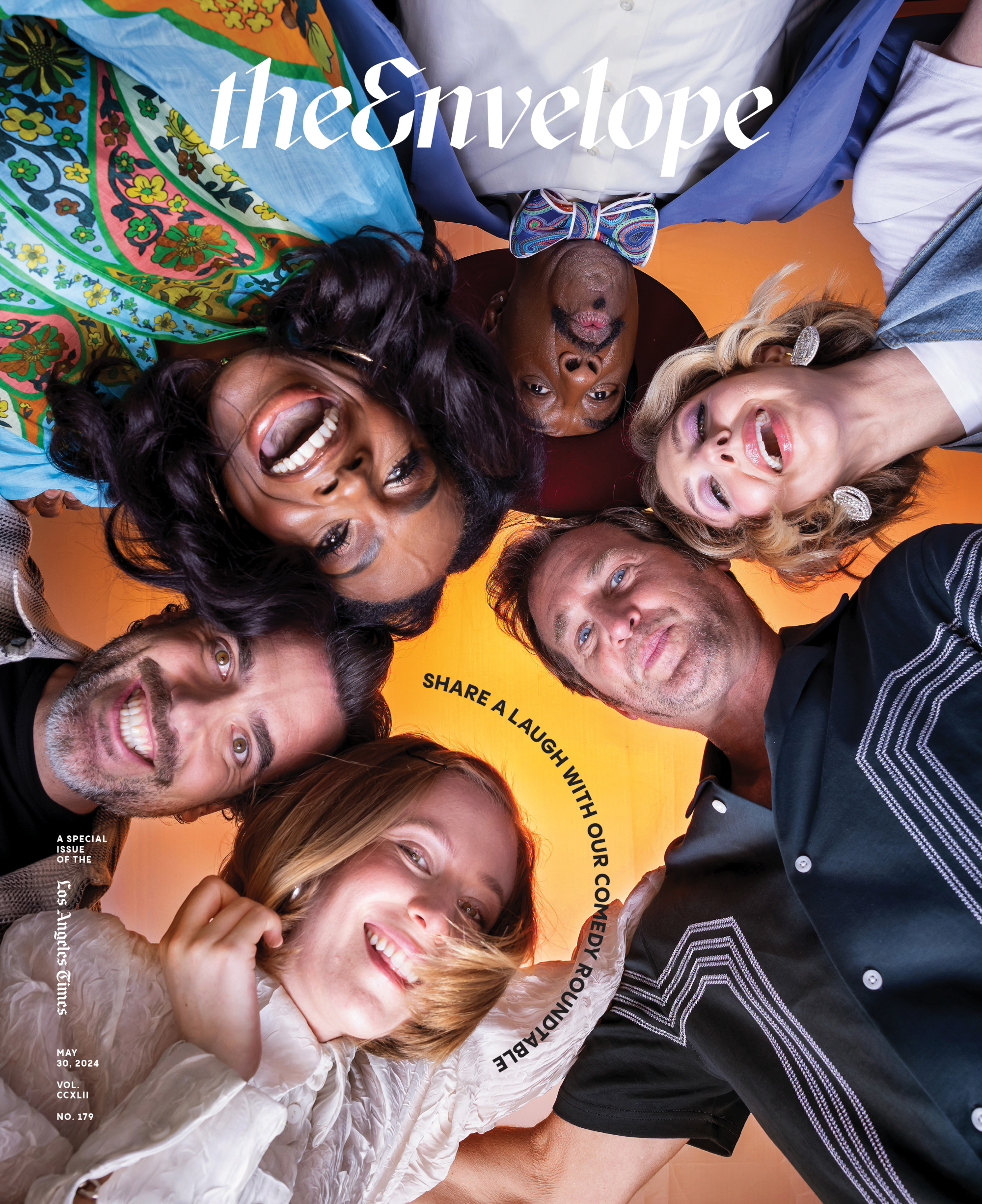
More to Read
From the Oscars to the Emmys.
Get the Envelope newsletter for exclusive awards season coverage, behind-the-scenes stories from the Envelope podcast and columnist Glenn Whipp’s must-read analysis.
You may occasionally receive promotional content from the Los Angeles Times.






